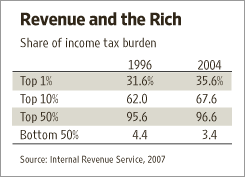 Income inequality gets a lot of attention these days, see a recent NY Times article here.
Income inequality gets a lot of attention these days, see a recent NY Times article here.What doesn't get much attention is "unemployment rate inequality," by educational attainment, which is HUGE (see graph above). There is a persistent 5.24% gap between the jobless rate for those with less than a high school degree (average = 7.65%) and those with a college degree or higher (average = 2.41%).








































